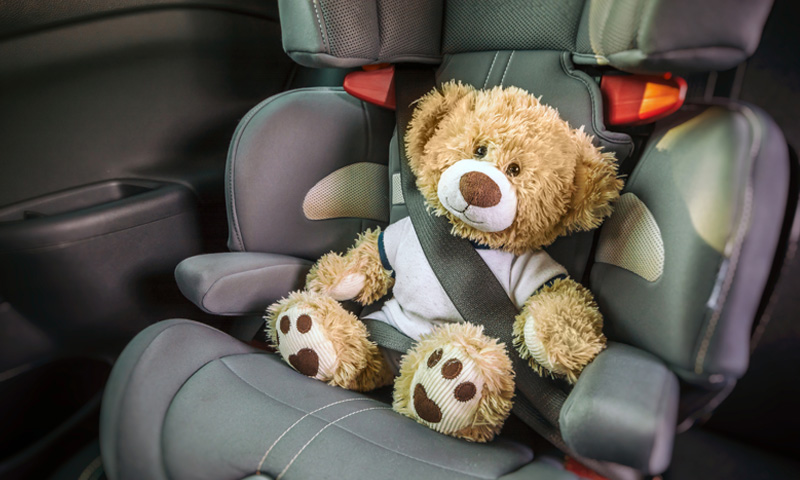In 2018, 53 children died after being left inside a hot vehicle. Last year, another 52 children died in the same way. It’s a tragedy that happens all too often during the summer months, and it’s entirely preventable.
Pediatric vehicular heatstroke (PVH) in young children is a serious risk, especially as outdoor temperatures climb to the 80s and 90s throughout Pennsylvania. The temperature inside a car rises by almost 20 degrees in just 10 minutes. That means, on a 90-degree day, the inside of a locked, uncooled car could be as high as 110. Sadly, that’s hot enough to cause fatal heatstroke in a young child.
“A child’s body temperature can rise three-to-five times faster than an adult’s,” says Michael Prasto, MD, Chair, Department of Emergency Medicine at Grand View Health. While children ages 2 and under are most at risk, PVH deaths have occurred in children as old as age 14.
Since 1998, more than half of all PVH deaths resulted from caregivers mistakenly forgetting to take their child out of the car. “Make sure this doesn’t happen to you or your family. When leaving your car, ask yourself ‘Where’s Baby.’ Look before you lock,” says Marie Dieter, RN, Trauma Program Manager with Grand View Health.
Follow these tips from the National Safety Council and the National Highway Transportation Safety Administration:
Park, look and lock.
Whenever parking your vehicle, always look in both the front and back seats before you lock the door.
Put an often-used item alongside a baby’s car seat.
By setting a purse, cellphone or briefcase in the back seat next to baby, you’ll remember to always check the back seat—and check for baby—before leaving the car.
Use a stuffed animal or memento.
Place it in your child’s car seat while unattended. Then, when baby is in his or her car seat, move the memento to the front seat so you’ll remember baby is in the back.
Talk with your child’s caregiver.
Instruct them to call you immediately if your child doesn’t arrive as scheduled.
Never leave a child alone in a car.
It’s unsafe, even with the windows rolled down and the air-conditioning running.
Keep your car doors locked.
Roughly one-quarter of PVH deaths happen to children who get in the car on their own and accidentally lock themselves inside. Keep your car doors locked at all times to prevent this from occurring. Teach children that a vehicle is not a play area, and keep your car keys out of reach.
If you see a child alone in a car on a hot day, act quickly. If the child appears to be OK, attempt to locate the parents quickly. If the child is unresponsive, call 9-1-1 immediately. Attempt to get in the car, even if it means breaking a window.

